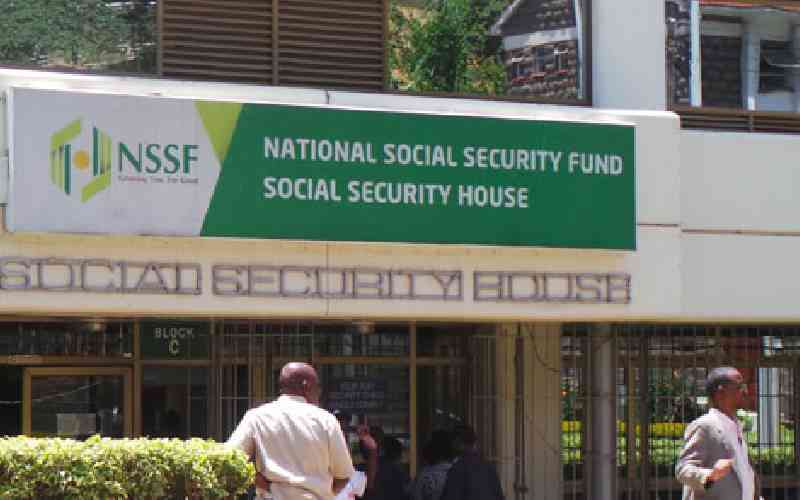×
The Standard e-Paper
Smart Minds Choose Us

This year the National Social Security Fund (NSSF) was in court for two major lawsuits that sum up the apprehension workers have against the fund.
Cash-strapped workers, who have religiously contributed over Sh15 billion, were highly disturbed by the pending decision by the High Court on September 19 over the implementation of a new law that seeks to increase their monthly contributions by as much as 980 per cent for employees earning over Sh18,000.